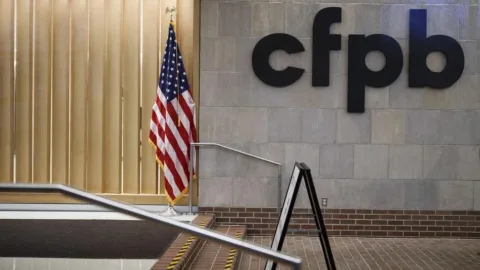In its latest about-turn under the Trump administration, the Consumer Financial Protection Bureau is preparing to reopen its recently finalised open banking rule, according to Bloomberg Law.
Editorial
This content has been selected, created and edited by the Finextra editorial team based upon its relevance and interest to our community.
In October, the CFPB published the Personal Financial Data Rights final rule, designed to give Americans the right to instruct their banks to share their financial data with third party providers.
However, according to Bloomberg Law, citing sources, the Trump administration is now set to reopen the rule and potentially vacate it.
The plan comes as banks raise concerns about potential liability for data breaches and the ability to charge for access to data, says Bloomberg. The banks also want to the ability to stop firms that abuse their access to customer data from the system.
It is not known whether the rule will be amended or eliminated.
Steve Boms, CEO of open banking advocates FDATA North America, says: “Reopening this rulemaking means stalling financial innovation and prolonging uncertainty for both businesses and consumers in America.”
However, the plan has long proved unpopular with many in the traditional financial industry. Within days of the rule being finalised, the Bank Policy Institute and Kentucky Bankers Association filed a lawsuit against the CFPB, alleging that the regulatory agency overstepped its authority with the new rules.
The suit argues the rule puts the entire responsibility of protecting customers on the banks, while the CFPB takes no accountability for the oversight or supervision of data recipients.
For the CFPB, this is the latest example of a starkly different approach under Trump as it scales back its activities and reverses previous positions under acting Director Russell Vought.
In March it ditched an interpretive rule declaring that pay-in-four BNPL lenders should be treated in the same way as credit cards.
In recent weeks it has also dropped a host of lawsuits, including against JPMorgan Chase, Bank of America and Wells Fargo over fraud on the Zelle P2P payments network.
Meanwhile, a rule that would give the watchdog oversight of tech giants such as Apple, Google and X, that offer digital payment apps and wallets has been killed off by the Senate and House of Representatives.

